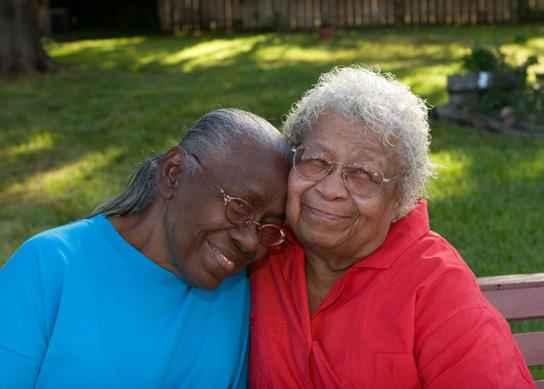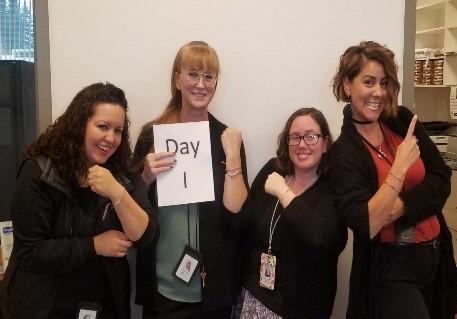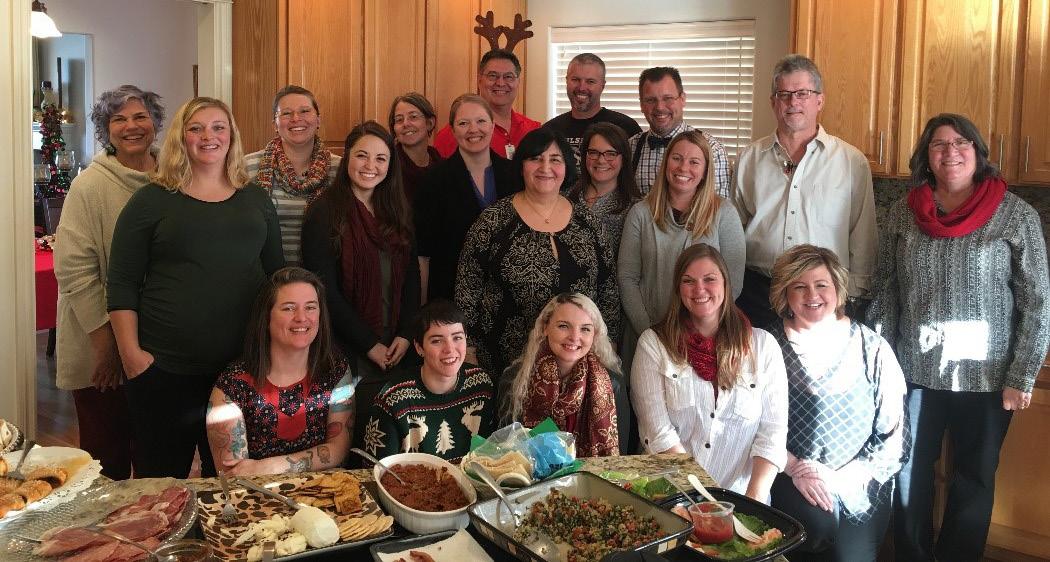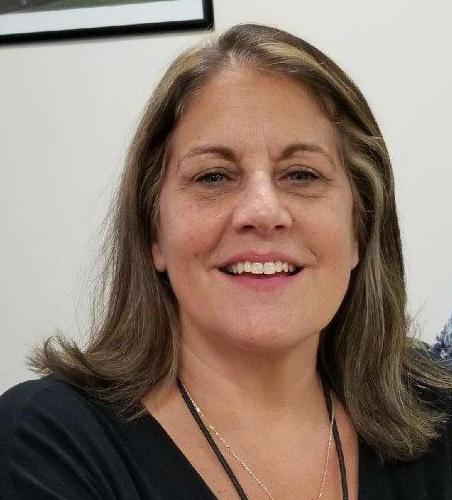
6 minute read
CLIENT PROFILE
‘I STILL HAVE SO MANY THINGS TO DO’ One SET member turns his experience with TBI into an opportunity to advocate for others
When Washington State Governor Jay Inslee, seated, signed a bill increasing the brain injury fee for speeding tickets, Isaac, who stands behind the governor, was there to watch the historic event. Isaac, a traumatic brain injury survivor, was a key advocate for the passage of the legislation.
Advertisement
Each issue, we will spotlight someone who receives our services and demonstrate how we work to understand the impact of our services on those who receive services and how individuals are engaged in creating change.
This issue, we are profiling client and Service Experience Team member Isaac. The Service Experience Team is a client advocacy group created by HCS to increase our ability to provide information, receive input and better understand the impact of our policies and services on the individuals who receive them.
For many people, Nov. 8, 2016, stands out as the day of the most recent presidential election. For Isaac, the date is memorable for another reason. On that day, Isaac, an award-winning investigative journalist and long-time resident of Minnesota’s Twin Cities, had a massive stroke.
“When I came around, I remember I asked a doctor and he said I’d been in the hospital for a month,” Isaac recalled. “He said, ‘to be honest with you, I don’t understand why you’re still alive.’”
The doctor told Isaac he’d had a stroke and that as a result, he had a traumatic brain injury. Laying in the hospital bed, Isaac felt hopeless. He knew he could not return to his former career. The hospital wouldn’t discharge him back to his home in St. Paul, believing he was unable to care for himself. Instead, they put him on a train to Tacoma, where his sister lived.
The next few months were difficult for Isaac. He struggled to walk and speak. He didn’t know what lay ahead for him. Eventually he decided to join a support group, a decision he calls one of the best he ever made. As Isaac struggled to adjust to his new life, the other support group participants encouraged him to start a blog documenting his experiences. Through the help of the support group and his blog, Isaac’s perspective began to change.
This photo of Isaac was taken before his stroke.
“I said, ‘I’m going to recover,’” Isaac recalled. “I don’t have a choice. I still have so many things to do.”
Isaac has used his blog to document many aspects of his journey, from learning about his diagnosis to the advice he would give to friends, family and caregivers of people with TBI. He also used the blog to document challenges he was experiencing finding housing. Shortly thereafter, HCS Social Service Specialist Staci Hinshaw reached out to Isaac to help him find a place to live. Isaac moved into a Tacoma adult family home in July 2017 and has been living there since.
“She made a huge difference in my life,” Isaac said of Staci. “That’s one of the things, is people have been very sympathetic and empathetic since I had my stroke.”
Isaac’s blog also allowed him to connect with others who had TBIs or were advocates for people with disabilities. At a TBI conference in spring 2018, he met someone doing legislative outreach on TBI. She asked Isaac if he would help.
Isaac agreed and was soon after meeting with legislators, writing a draft proposal and testifying on legislation that would increase the brain injury fee on speeding tickets and other moving violations from $2 to $5. The money goes to the TBI Council, which uses it to fund projects that support people with TBI and raise awareness about the injury.
“I had one senator tell me my testimony convinced him to vote in favor,” he said. “It was very eye-opening as far as some of the behind-the-scenes stuff.” The bill passed unanimously in the House and with just one dissenting vote in the Senate. On April 29, 2019, Isaac was there to witness Gov. Jay Inslee sign the legislation into law. “ You should never underestimate the power of a group of dedicated people committed to a cause greater than themselves.
–Isaac
“One of the things that everybody should always keep in mind is that you should never underestimate the power of a group of dedicated people committed to a cause greater than themselves,” Isaac said. “The little guy can win sometimes but you have to believe you can. You have to believe in what it is that you’re doing.”
Although the bill he championed has now become law, Isaac is not done advocating for others with traumatic brain injury. Just one of those avenues is through his work with the Service Experience Team, where he can continue being a voice for HCS clients and people with traumatic brain injury.
“When I was in the hospital, I thought my life was over,” Isaac said. “My life is not over. I still have many great things I can do.”
In some ways, Isaac said, he feels lucky he had a stroke. It gives him a unique perspective and the opportunity to speak on behalf of others with TBI who can’t speak for themselves.
“I have the opportunity to speak for a lot of people and advocate on their behalf. For me, I can’t think of a better thing to do with your life,” Isaac said. “I’m really very happy I was given the opportunity to make my little corner of the world a better place.”
EQUITY DIVERSITY & INCLUSION
You have probably been hearing a lot recently about equity, diversity and inclusion, or EDI. You may have gotten emails or other messages from your leaders or regional EDI specialists about best practices and training opportunities that center around building workplaces and services that are welcoming and inclusive. Although you probably recognize the importance of equity, diversity and inclusion in our work, you may be wondering, why the focus on EDI now?
Strengthening our understanding of equity, diversity and inclusion, both in the workplace and in our work with partners and clients, will allow us to continue innovating in the field of long-term services and supports.
A more inclusive workplace is part of what makes ALTSA an employer of choice – where skilled and passionate people of various identities and from different backgrounds can bring their unique perspectives to our work of transforming the lives of our clients. For those of us working here at ALTSA, a more inclusive workplace means we can all bring our authentic selves to work each day without fear of judgment or discrimination. By bringing together a range of perspectives and creating an environment where everyone feels free to voice bold ideas, we can continue to transform our services to better support our clients.




Approaching our work with clients with an EDI lens allows us to better understand their needs, desires and motivations so we can more effectively identify the services and supports to help them thrive. At the same time, being able to engage an array of partners from different fields and backgrounds will allow us to tap into new resources and opportunities to serve our clients.
Our regional EDI specialists, who support both our division and Adult Protective Services, are already hard at work developing strategies to support their respective regions. All three regions are wrapping up the “A Moment with EDI” workshops for managers and are developing cultural competency committees in every local ALTSA office around the state.
In the coming weeks and months, I encourage you push yourself to better understand the value of EDI and seek out opportunities to embrace the importance of EDI in our work with clients, with co-workers, our provider network and our community partners. In future issues of this newsletter, we will explore the strategies that are working around the state to build a more inclusive and aware environment.
Thank you for your continuing commitment to supporting one another and improving our practices to support our clients.






